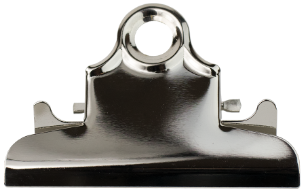IDENTITY AND INTEREST OF AMICI CURIAE:
Amici Curiae respectfully urge this Court to reverse the Sixth and Second Circuit decisions (Harris and Zarda) and affirm the Eleventh Circuit (Bostock). Institute for Faith and Family (IFF) is a North Carolina nonprofit, tax-exempt charitable organization based in Raleigh, NC that exists to advance a culture where human life is valued, religious liberty thrives, and marriage and families flourish. See https://iffnc.com. Christian Family Coalition (“CFC”) is a Florida organization established to empower families at the grassroots level and give them a voice in government. CFC informs and educates citizens about candidates and pending legislation, trains Christian leaders, and defends the legal rights of Christians.
INTRODUCTION AND SUMMARY OF THE ARGUMENT
This Court’s plurality opinion in Price Waterhouse cannot bear the weight of some recent lower court decisions. Price Waterhouse did not craft a new cause of action for stereotyping or disturb the objective, biological understanding of “sex” as male and female. This Court’s decision was grounded in logic and reality—the female plaintiff was denied a promotion because she was not sufficiently feminine to comply with her employer’s ideal. Stereotyping was properly introduced as evidence that the employer had acted on the basis of sex by denying a promotion to an aggressive woman that it would have readily granted to an aggressive man. Nothing in this decision warrants a sweeping redefinition of biological reality that injects sexual orientation and/or gender identity into the meaning of the word “sex.” Yet some lower courts, including the Sixth and Second Circuits, jump from stereotypical ideas about the roles of men and women to conclusions that render heterosexuality—and even the very idea of biological sex—illicit stereotypes. Some recent cases, such as the ones at issue here, have ripped the stereotyping terminology from the pages of Price Waterhouse and commandeered it for purposes far removed from Title VII’s objectives. Title VII was enacted to ensure that men and women have equal employment opportunities. It was not designed to be a radical social engineering project that shoehorns sexual liberties into federal law.
ARGUMENT: PRICE WATERHOUSE DID NOT ESTABLISH A DISTINCT, INDEPENDENT CAUSE OF ACTION FOR STEREOTYPING.
Courts have hijacked Price Waterhouse’s stereotyping terminology to manufacture new causes of action for sexual orientation and gender identity discrimination. Courts have restructured stereotyping as a separate species of sex discrimination instead of using it for its intended evidentiary purposes. Courts have distorted the comparative test used to analyze and detect disparate treatment of men and women.
PRICE WATERHOUSE DID NOT ALTER THE BINARY UNDERSTANDING OF SEX AS IMMUTABLY MALE AND FEMALE.
Blurring the binary concept of male and female distorts the concept of stereotyping. Blurring the binary concept of male and female detracts from the fundamental purpose of both Title VII and Price Waterhouse—to ensure that male and female employees have equal employment opportunities.
CONCLUSION:
This Court should reverse the Sixth and Second Circuit decisions (Harris and Zarda), and affirm the Eleventh Circuit (Bostock).










